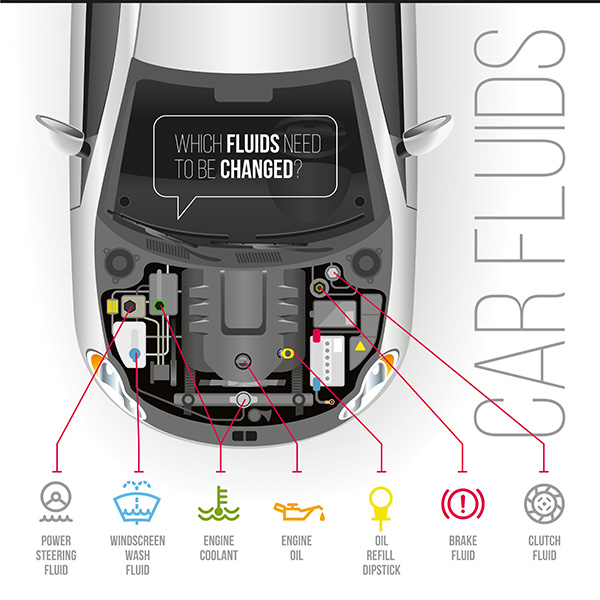
Your vehicle may seem to run perfectly fine, but under the surface, old fluids could be quietly causing long-term wear. Many drivers assume that as long as the car starts, accelerates, and stops without issue, there’s nothing to worry about. However, fluid health is one of the most overlooked areas of preventative maintenance and it plays a major role in your car’s longevity.
Even if everything feels normal now, neglecting fluid changes can lead to expensive repairs down the road.
What Do Automotive Fluids Do
Each fluid in your vehicle serves a specific and essential purpose. Engine oil lubricates moving parts, transmission fluid ensures smooth gear shifts, brake fluid transfers force from your foot to the wheels, coolant regulates temperature, and power steering fluid helps you turn the wheel easily.
These fluids don’t just disappear; they break down over time, pick up contaminants, and lose their protective qualities. When this happens, your car’s systems may still operate for a while, but at a cost.
The Slow Damage of Degraded Fluids
Old fluids may not cause immediate failure, but they can silently damage components behind the scenes. Engine oil that’s past its prime loses its ability to lubricate properly, allowing metal parts to wear more quickly. Brake fluid absorbs moisture, which can corrode brake lines and reduce stopping power. Transmission fluid that’s full of debris increases internal friction and heat, wearing out gears and clutches faster.
Just because you’re not feeling the effects today doesn’t mean wear isn’t happening. Often, the damage builds up gradually until it suddenly becomes a major issue.
Why Time Matters as Much as Mileage
Many people follow maintenance schedules based solely on mileage. But time matters, too. Even if you don’t drive much, fluids can degrade while sitting. Moisture can build up, additives can break down, and seals can begin to dry out.
A car that’s only driven a few times a month still needs its oil, brake fluid, or coolant changed on a calendar basis to stay in good shape.
Signs That Fluids Might Be Past Their Prime
While your car may feel fine, there are subtle signs that fluids could be due for service. These include:
- A slight delay when shifting gears
- A soft or spongy brake pedal
- Engine noise or ticking sounds at startup
- Higher than usual engine temperatures
- Discolored or dark fluids visible on dipsticks or reservoirs
It’s easy to overlook these signs, especially if the vehicle seems to perform well most of the time. But they’re often early warnings of fluid breakdown.
The Importance of Routine Fluid Checks
Regular fluid checks give you a chance to catch degradation before it turns into damage. This includes checking the color, smell, and level of each major fluid. Transmission fluid should be a clear red, not brown or burnt-smelling. Coolant should be brightly colored and free of debris. Brake fluid should be light yellow or clear, not dark or murky.
You don’t need to wait for a dashboard light to know something is wrong. Proactive maintenance helps extend the life of your engine, transmission, brakes, and more.
Schedule Fluid Services at Premier West Gears in Riverside, CA
Even if your car seems to be driving perfectly, don’t ignore your fluids. Our technicians can inspect all key systems, test fluid condition, and recommend services that keep your vehicle running smoothly for the long haul.
Call Premier West Gears in Riverside, CA, to schedule a fluid check and protect your vehicle from silent damage.